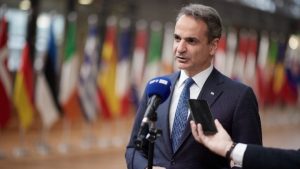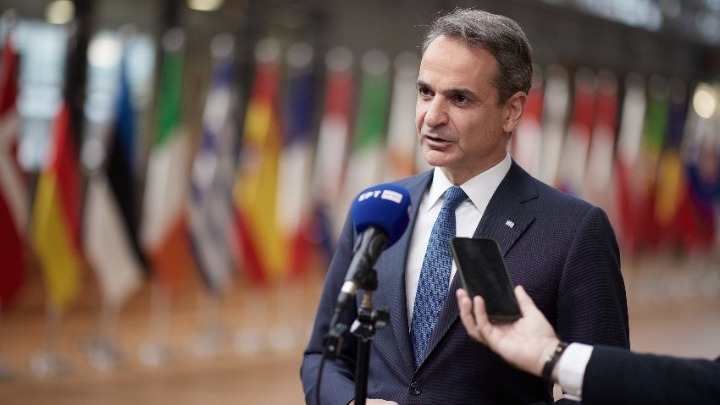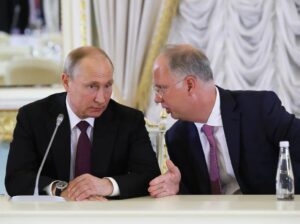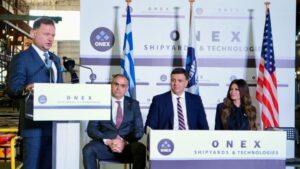It should be clarified that the sole reason the mid-term revision of the 2021-2027 Multiannual Financial Framework (MFF) was not adopted during the European Council meeting was Hungary’s veto, said Greek Prime Minister Kyriakos Mitsotakis in Brussels on Friday.
Speaking after the end of proceedings, he noted that the framework agreed by the 26 EU countries fully covers Greece’s concerns, as it includes significantly increased funds for migration, more funds for natural disasters, and an important provision for further flexibility in the use of EU funds concerning 2014-2020.
An emergency European Council meeting will be held at the end of January, he added, to facilitate an agreement on the framework accepted by the 26 countries and not by Hungary.
“We are satisfied because Greek concerns were taken into account, plus there is an overall understanding that there should be more migration funding, especially for countries on the EU’s external borders”, he added.
Asked by reporters about Greek-Turkish relations after the recent Athens visit of Turkish President Erdogan, the Greek premier said that these relations are “on a good course that will allow us to discuss the difficult issue – which for decades we have not been able to resolve – this being the delimitation of maritime zones, EEZs and continental shelf in the Aegean and the Eastern Mediterranean.”
Greece has always been in favor of the European accession prospects of Western Balkan countries, said Mitsotakis. During this process “each country is assessed individually for the progress it makes on several issues including those about the Rule of Law, and for us the issue of Himare’s Mayor-elect Fredi Beleri is essentially a Rule of Law issue, not a mere bilateral dispute Greece has with Albania”, he underlined.
On tackling broad price hikes in general goods, Mitsotakis noted that in December alone some 700 million euros worth of relief measures was put aside for vulnerable households, “so that Christmas may be spent a little more comfortably.”
See also:
Mitsotakis stresses the need to increase resources for migration and the climate crisis







